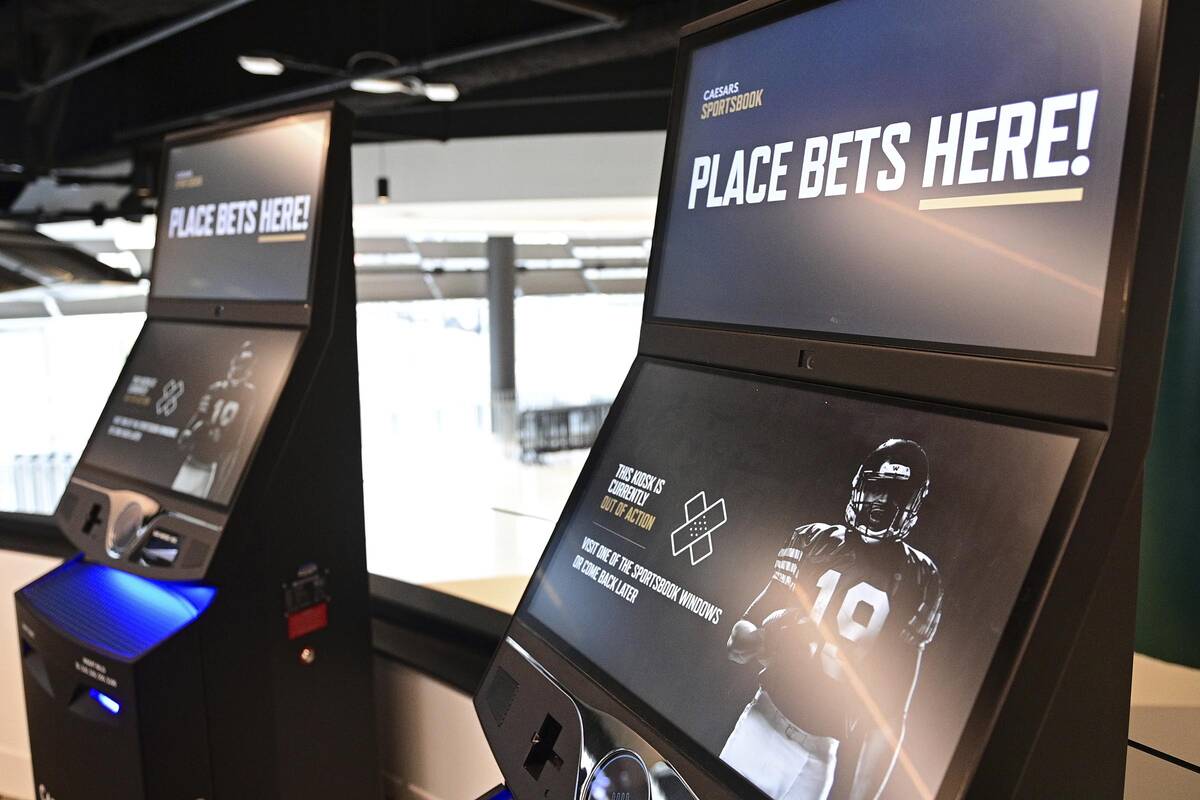MGM, Caesars fined in Ohio for ad violations

Three sports betting companies, including two based in Nevada, are being disciplined by Ohio gaming regulators for violating the state’s sports wagering advertising rules.
The Ohio subsidiaries of Caesars Entertainment Corp., MGM Resorts International and DraftKings face fines of $150,000 each for failing to prominently display responsible gaming messages in their ads in Ohio, said Jessica Franks, director of communications for the Ohio Casino Control Commission, on Friday.
The fines were reminiscent of advertising violations that occurred in Nevada in the early 2000s.
The companies also are alleged to have used the terms “free” and “risk-free” in promotional materials designed to generate business in violation of state law. Companies commonly promote risk-free bets as a means of encouraging players to make wagers.
But Franks said the advertising violations were the only blemish in the successful startup of Ohio sports betting, which began Jan. 1.
One settled but two more pending
Franks said Reno-based Caesars already settled with the commission and will pay the fine.
MGM and DraftKings violations are unresolved and those companies were given 30 days to settle or challenge the allegations. The commission is expected to resolve the matter at its next scheduled meeting, Feb. 15.
Ohio laws require companies to tag their ads with messages encouraging compulsive gamblers to seek help if they’re tempted to bet beyond their means. It also states companies can’t say a bet is “free” or “risk-free” if it isn’t.
“If an ad says a bet is ‘free’ or ‘risk-free,’ it truly has to be free to the patron,” Franks said. “They can’t have to risk any of their own money or wager any of their own money in order to obtain those free bets. They have to be truly free to the customer.”
Ohio launched sports betting with 13 brick-and-mortar sportsbooks, 16 mobile apps and 700 kiosks at bars and taverns. Franks said the advertising rules were well explained weeks before the launch, and after commissioners saw early signs of potential violations, they issued a guide to licensees that they hoped would prevent any future problems.
Franks said there have been other snags in the startup. Rules clearly state companies cannot advertise on college campuses or target bettors under the legal betting age of 21.
There are instances in which radio or television ads can be heard in dorm rooms on campuses and that’s allowed, according to Franks. However, regulators discovered that Penn Entertainment-affiliated Barstool Sports had a football-related remote radio broadcast from a campus facility at the University of Toledo. The company faces a $250,000 fine for the alleged violation.
Regulators also discovered that DraftKings issued mailers promoting sports betting to underage people — a $350,000 fine for that instance also is pending. If approved, that fine would be the largest in Ohio gaming history.
“The goal is to achieve long-term compliance and the commission issues fines commensurate with the illegal action,” Franks said.
Representatives of Caesars not only appeared before the commission at its Jan. 18 meeting and agreed to pay the fine but said it had fired their affiliate marketing company responsible for the ads.
Representatives of BetMGM had no comment. DraftKings did not respond to inquiries from the Review-Journal.
Hard Rock ad case
Nevada also has rules regulating advertising casinos. It was put to the test in 2004 when the Nevada Gaming Commission fined the former Hard Rock Hotel $300,000 to settle a complaint about the casino’s advertising.
At the time, Hard Rock and the Palms were competing for young customers. Hard Rock produced edgy billboards and advertisements that regulators said went too far by encouraging cheating at gambling and illegal drug use. The Hard Rock said the ads were designed to be satirical and attention-grabbing.
The offending ad showed a man and a woman on a gaming table, surrounded by playing cards and poker chips, with the caption reading, “There’s always a temptation to cheat.”
At the time, Hard Rock’s ad campaigns were filled with sexual double-entendres.
Hard Rock’s response to regulators said: “The Hard Rock had a subjective belief that the advertisement described … was satirical in nature and never acted intentionally to promote or encourage cheating at gambling through that advertisement. However, the Hard Rock now understands and agrees that as a gaming licensee, there are some subjects such as condoning cheating at gambling that are not suitable for its commercial expression.”
The company also agreed to listen more to its gaming compliance committee, which had recommended against displaying the ads.
Contact Richard N. Velotta at rvelotta@reviewjournal.com or 702-477-3893. Follow @RickVelotta on Twitter.